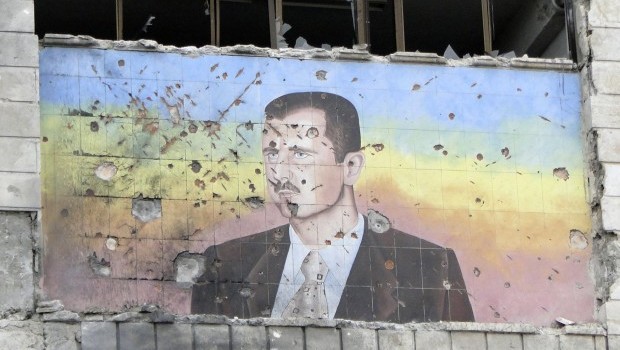Syria, according to many indicators, is headed toward state failure. Extremism is on the rise and sectarianism is pervasive. With 70,000 Syrians killed and over three million displaced, the humanitarian situation is grim. The conflict’s destabilizing spillover to Jordan, Lebanon, Turkey and Israel is a major concern, and the Syrian government’s chemical weapons stockpiles present a critical threat. Amid the crisis, external actors both inside and outside the region are working to shape their own versions of a future Syrian state.
By itself, military assistance to the opposition is not a solution: there can ultimately only be a political resolution to this crisis. What is needed is a combination of military assistance and a coordinated strategy of capacity–building within the opposition. This strategy could reinforce efforts to find a political solution to the crisis, because a better–trained and organized opposition could not only change the power balance on the ground, but also the perceptions of the conflict in Russia and Assad’s inner circle. A negotiated political settlement, supervised by a UN–Arab League peacekeeping force, would be the best first step to restore law and order, preserve Syria’s territorial integrity, and prevent sectarian conflict and ethnic cleansing as Syria builds a stable, democratic future.
The United States, together with its partners in the international community, should act to preserve the multi-ethnic and multi-confessional nature of the Syrian state, and help the Syrian people develop a democratic state at peace with its neighbors. While renewed American and European Union engagement with Russia is needed to help reach a political solution in Syria, immediate steps could be taken to support moderate forces on the ground and buttress neighboring countries under pressure from the crisis. To accomplish this, the US should consider the following policy initiatives.
The US, along with the international community, should help the Syrian National Coalition for Opposition and Revolutionary Forces to become a transitional government that is inclusive of all communities in Syria and is representative of former Syrian government officials who share a common vision for a democratic, post-Assad Syria. In an effort to support the moderate opposition, protect Syrian civilians and undermine extremists, the US should consider providing military assistance, in cooperation with like-minded countries, to FSA leaders who have been vetted for their commitment to this vision of a future Syria. In addition, the US and NATO could form a joint special operations command in Turkey to monitor the delivery of military assistance and provide logistical and communications support and training to these fighters.
On the international level, the US needs to work with the Gulf Cooperation Council (GCC), the Arab League and the EU to create a unified international funding source for the National Coalition. The administrators of this international fund, preferably a joint EU–GCC initiative, should work closely with the National Coalition to ensure the proper allocation of funds to efforts to build local governance, ensure broad representation in the National Coalition, and provide humanitarian assistance to those in need.
Concurrently, the US should conduct high-level diplomacy to find and explore common interests with Russia to end the violence in Syria and ease the fears of a post-Assad transition. The US should also propose to the UN that individuals associated with the atrocities committed by either the regime or the opposition should be investigated and referred to the International Criminal Court.
Regionally, the US should lead the efforts of the EU, the Arab League, NATO and the GCC to support neighboring states in the Levant—in particular Jordan and Lebanon—that are vulnerable to political and economic turmoil as a result of the deepening civil war in Syria. The US should continue to assist efforts by the UN, the EU and nongovernmental organizations to address the deepening humanitarian crisis for individuals displaced or caught up in the fighting, and for refugees in Turkey, Iraq, Lebanon, Jordan and Egypt.
On security issues, the US should reiterate its red line regarding the use of chemical and biological weapons. A peacekeeping force mandated by the UN and the Arab League may be needed once the Assad regime falls, in order to fill the security vacuum in the state. The US should also consult closely with Israel on the evolving security situation on the Israeli–Syrian border.
As Syria faces this critical moment in its history, American leadership in a multilateral context is imperative to prevent a state at the heart of the Middle East from collapsing and exacerbating the security problems of an already fragile region.
